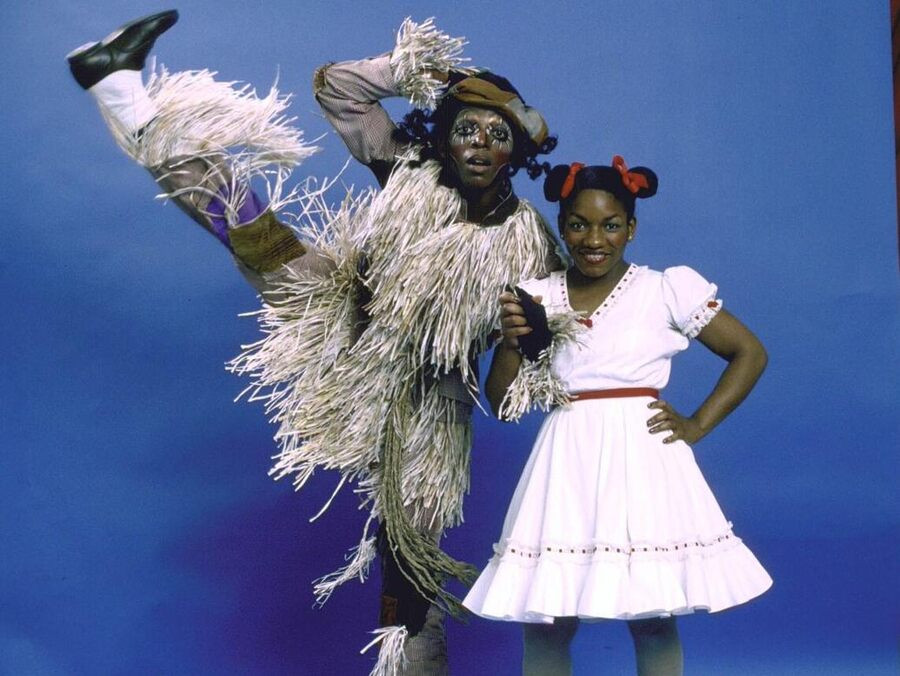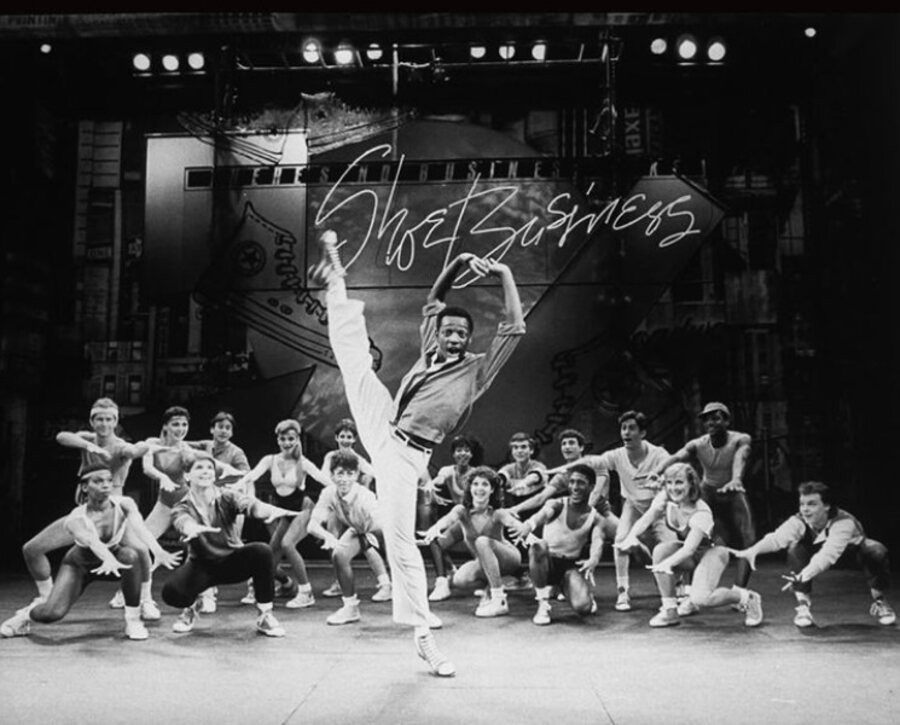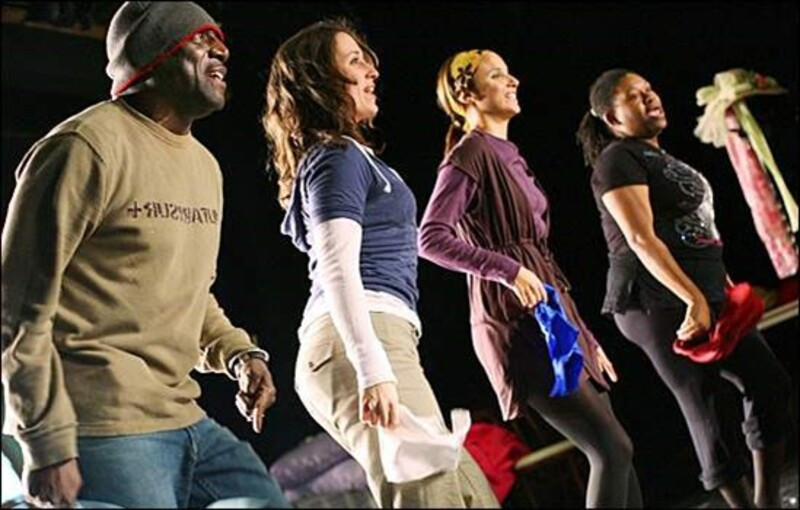Hinton Battle, a luminary of the stage who captivated audiences with his explosive energy and unparalleled talent, passed away on January 30 at the age of 67. A three-time Tony Award winner celebrated for his exceptional work as an actor, dancer, and choreographer, Battle’s legacy resonates deeply within the performing arts community and beyond.
Debbie Allen, the Emmy and Tony-winning icon of Fame, fondly remembers Battle’s electrifying presence: “Hinton was dynamite,” she stated. “Dancing dynamite, because he exploded onstage. It was where he was meant to be.” This sentiment encapsulates the raw power and passion Battle brought to every performance, a dynamic force that redefined dance on Broadway.
Phylicia Rashad, the esteemed actress, director, and Dean of Howard University’s Chadwick A. Boseman College of Fine Arts, echoed this admiration. “There was nothing like him,” she emphasized, highlighting his unique and irreplaceable contribution to dance. Actor Keith David, recalling their early days at Julliard, shared an anecdote of sneaking into dance juries, eager to witness fellow students perform. He vividly described Battle’s performance with Shirley Black-Brown to “Wind Parade,” a breathtaking display of synchronicity and artistry that left a lasting impression. “The best dancing I’ve ever seen. We all knew we were witnessing talent extraordinaire!” David exclaimed.
Denise Saunders-Thompson, former co-curator of Dance Theatre of Harlem and Assistant Dean at Howard’s School of Fine Arts, captured Battle’s vibrant spirit, noting, “He was always outside the box and enjoyed life to the fullest. He entered relationships that way, always wanting life and light. I loved that about him.” This zest for life and art fueled his relentless creativity and innovation.
Battle’s artistic journey was marked by continuous growth and exploration. Beyond his celebrated performances, he excelled as a choreographer, music arranger, director, and producer. Dorothy Marcic, a Columbia University professor and playwright, experienced Battle’s directorial magic firsthand when he helmed her musical Respect: A Musical Journey of Women. “He created magic and color and light in a way I’d never seen,” Marcic recalled, emphasizing his transformative vision.
His support extended beyond directing. When Marcic’s musical Sistas premiered at a New York City festival, Battle’s insightful feedback proved pivotal. Initially anticipating critical notes, Marcic was met with enthusiastic encouragement. “Dorothy, this is what we need on the stage,” Battle declared, leading to a producing partnership with Bill Franzblau that propelled Sistas to a remarkable nine-year Off-Broadway run.
This tribute serves as a heartfelt appreciation for Hinton Battle’s profound impact on countless lives – from audience members spellbound by his performances to the artists he mentored and inspired. His influence spans across various media, leaving an indelible mark on the landscape of performing arts.
Allen recounted her first encounter with Battle shortly after arriving in New York. She was set to join George Faison’s Universal Dance Experience, where Battle’s sister, Lettie Battle, was a principal dancer. Even after rigorous classes at the American Ballet Theatre, Hinton would join rehearsals, bringing an infectious joy and distinctive style. “He arrived in his jean shorts, wild hair, and those big, tawny platform shoes we all wore. He was so joyful,” Allen reminisced. Their partnership continued in Raisin, a musical adaptation of A Raisin in the Sun, where their dynamic dance chemistry shone brightly. “We were killing it,” Allen continued, describing their demanding routines. However, Battle’s artistic drive led him to prioritize his education, even at the peak of his performance career. “I’m tired of picking you up. I’m leaving the show,’” Allen quoted Battle, recalling his decision to return to high school despite the show’s success.
Rashad’s first impression of a teenage Hinton Battle was equally striking. “I saw him dance,” she said. “He was strong, confident, flexible, and precise.” George Faison recognized this exceptional talent, casting him in The Wiz, a role that would catapult Battle into the Broadway spotlight.
 Hinton Battle and Stephanie Mills in “The Wiz.” (Photo from NYPL)
Hinton Battle and Stephanie Mills in “The Wiz.” (Photo from NYPL)
Battle’s Broadway debut in The Wiz is a testament to his readiness and extraordinary talent. Stepping into the role of Scarecrow with only minutes to prepare, Battle transformed the character with his dance prowess and unexpected vocal abilities. As Rashad noted, “All of a sudden, the Scarecrow took on a new meaning. The Scarecrow could dance, seemingly without a bone in his body. And who knew Hinton could sing?” His impromptu performance captivated audiences and secured him the role permanently for two years.
Despite the whirlwind success, Battle remained devoted to ballet, his foundational passion. While he embraced the opportunities Broadway offered, Rashad explained, “Artistically, it was confining for him.” His dedication to concert dance led him to a pivotal decision. When his request for a night off to perform in a dance concert was denied, Battle chose the concert stage, even at the cost of his Wiz contract. This bold move, though resulting in termination, paved the way for his triumphant return to Broadway in productions like Sophisticated Ladies, Tap Dance Kid, and Miss Saigon, ultimately earning him three Tony Awards.
His journey continued with On Toby Time, a showcase that connected him with Leah Bass-Baylis, who became a lifelong friend and colleague. Bass-Baylis witnessed Battle’s first Tony win for Sophisticated Ladies and later served as dance captain for Tap Dance Kid. Gwen Verdon recognized Battle’s raw talent during his Tap Dance Kid audition, seeing past his initial lack of tap experience. Under Verdon’s mentorship and with dedicated lessons, Battle mastered tap, securing another Tony and solidifying his versatility as a dancer.
 Hinton Battle and the company of “The Tap Dance Kid” on Broadway in 1984. (Photo by Martha Swope, Billy Rose Theatre Division, NYPL Digital Collections)
Hinton Battle and the company of “The Tap Dance Kid” on Broadway in 1984. (Photo by Martha Swope, Billy Rose Theatre Division, NYPL Digital Collections)
Bass-Baylis marveled at Battle’s physical capabilities. “Hinton could do literally anything with his body,” she stated, emphasizing his exceptional flexibility and strength. Beyond technique, she highlighted his unique performance quality: “He had this swagger and attitude and nuance—along with an uncanny musicality, which he added to the movement.” This musicality translated into unexpected and captivating movement phrases, enhanced by his impeccable ballet foundation. “He could hear accents in the music that no one else could, and he’d accentuate those accents with a flip of the wrist, a tilt to the head, or a flex at the foot,” Bass-Baylis explained.
Dulé Hill, renowned for roles in West Wing, Psych, and The Wonder Years, understudied Savion Glover in Tap Dance Kid, working closely with Battle. When the show toured to San Francisco, Hill assumed the lead role of Willie, with Battle as Dipsey. Hill deeply admired Battle, stating, “As a young performer, he was it. Hinton was the man.” He emphasized Battle’s multifaceted talent: “He could sing, kick like no other, leap in the air, act, and do everything a performing artist could imagine.” Battle served as a role model and mentor. “We all wanted to be Uncle Dipsey. He was the North Star,” Hill reflected.
Kenneth Ferrone, associate director of Broadway’s SpongeBob and director of The Wanderer and Sistas, lauded Battle’s diverse talents. “Hinton was not only one of our true triple threats in theatre, but actually a quadruple threat,” Ferrone noted, acknowledging his skills extended beyond performance to choreography, music arrangement, directing, producing, and teaching. He emphasized Battle’s ability to captivate audiences in any role.
Ferrone recounted a challenging Sistas filming experience at a Brooklyn church. During the second performance, a power outage threatened to disrupt the taping. Battle, as producer, stepped in to engage the restless audience. “Hinton jumped on the stage and led the audience and the chorus in singing ‘Blood Will Never Lose Its Power,’” Ferrone recalled. For forty minutes, Battle led the crowd in song, transforming a potential disaster into a moment of unity and inspiration, earning a standing ovation when power was restored.
 Hinton Battle with cast members from the Detroit production of “Respect,” Sarah Madej, Marlyn Sanchez, Shonka Dukereh, and Kelly Shook
Hinton Battle with cast members from the Detroit production of “Respect,” Sarah Madej, Marlyn Sanchez, Shonka Dukereh, and Kelly Shook
Hill reiterated Battle’s positive impact, “He was always going to brighten the room,” switching to present tense to emphasize the enduring feeling. “Whenever he enters, a big smile comes across your face and your heart gets lighter.”
Battle’s legendary humor was another defining trait. Sam Mattingly, his longtime PR agent, recalled his infectious sense of humor. “We sat and laughed all day,” she said, describing their playful banter.
Dawnn J. Lewis, of Tap Dance Kid, A Different World, and Dreamgirls fame, shared a humorous anecdote highlighting Battle’s playful nature. A sushi outing between Tap Dance Kid cast members turned into a prank when Battle convinced Lewis to sample wasabi as a palate cleanser. “Hinton was cracking up,” Lewis laughed, recalling the near-miss prank. Beyond humor, Lewis also remembered Battle’s supportive nature, recounting how he defended her against harsh direction during the show.
Mattingly admired Battle’s humility and kindness. “Kindness—that was Hinton,” she stated. She shared a story from the Tap Dance Kid tour, where Battle jokingly introduced her as his wife and her baby as his son, showcasing his lighthearted and generous spirit.
Even after injuries led him to retire from dancing, Battle remained creatively active. Franzblau recounted a revival reading of Tap Dance Kid where, with only an hour’s notice, Battle stepped back into his old role after 30 years, delivering an “unbelievable!” performance.
Battle’s entrepreneurial spirit extended to establishing the Hinton Battle Dance Academy in Japan and the Hinton Battle Danze Off competition in D.C., nurturing young talent and promoting dance education. Denise Saunders-Thompson also organized Soul Dance Barbecue, combining dance workshops with community gatherings, reflecting Battle’s love for both dance and connection.
In his later years, Battle was working on diverse projects, including a children’s book, a memoir, and a musical based on his life, penned by Inda Craig-Galván. His life story, marked by early challenges and his mother’s pivotal decision to send him to New York for dance training at the School of American Ballet, became an inspiration.
Leah Bass-Baylis provided unwavering support throughout Battle’s life, assisting with the Hinton Battle Dance Academy’s business plan and offering steadfast companionship. Colleagues like Lewis, Hill, and Franzblau described her as an “angel” for her dedication. Bass-Baylis emphasized their honest and enduring friendship. “We could go for years and not talk and then call one another for help or just to share something,” she said.
Debbie Allen shared a poignant final moment. “I saw him the night he left. I was there,” she recounted, sharing his whispered farewell: “Bye. Love, love, love you.”
Hinton Battle’s explosive talent, unwavering passion, and generous spirit have left an enduring legacy. His contributions to Broadway and the world of dance will continue to inspire generations of artists and audiences alike. He was, indeed, a North Star in the dance world.
Dorothy Marcic, Ph.D., is a Columbia University professor, Fulbright Scholar, and playwright of Sistas: The Musical and Respect: The Musical. She‘s the writer of 21 bestselling books and award-winning screenplays and is co-creator of the Wondery podcast “Man-Slaughter.” With Hinton Battle and Kimberley LaMarque Orman, she has co-authored the series Tapestry of American Black Theatre for this magazine.
Support American Theatre: a just and thriving theatre ecology begins with information for all. Please join us in this mission by joining TCG, which entitles you to copies of our quarterly print magazine and helps support a long legacy of quality nonprofit arts journalism.
